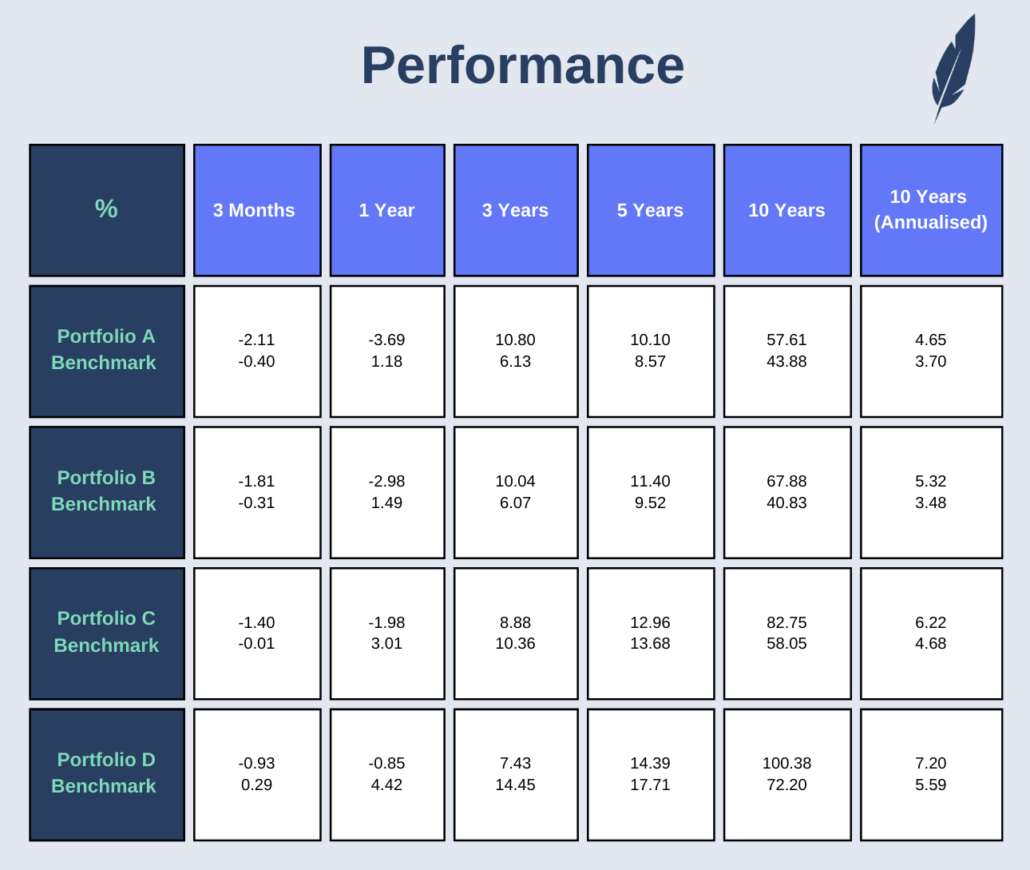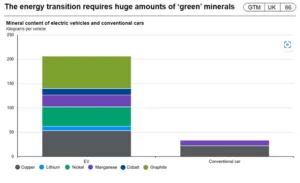Investment Update Q2 2023

Investment markets in 2023 have continued to be a roller-coaster, facing one of the more challenging backdrops in recent memory amidst numerous macro headwinds, including multiple interest rate hikes, stubborn inflation, a banking crisis, and a surge in AI stocks to highlight a few. The US market has proved to be the obvious winner so far this year, but at a closer look, only six companies, buoyed by AI, are responsible for that rebound. This is more likely to be a partial recovery of their extreme losses last year than the start of a new bull market, so T. Bailey remain cautious. Outside US tech stocks, financial markets have remained range bound as they wait to determine if interest rates will be set even higher or if inflation will finally start coming down in the UK. Additionally, whether a global recession will take hold is still up for debate.
As a result of that backdrop, T. Bailey’s returns have also remained range bound, and the funds are marginally down for the quarter.
Source: FE Analytics. Performance to 30/06/2023 shown as total return after investment fees. Past performance is not a reliable indicator of future returns. Capital is at risk. Relevant benchmarks: A (IA Mixed Investment 20-60% Equity) B (ARC Balanced) C (ARC Steady Growth) D (ARC Equity)
In equities, the thematic exposure in larger companies fared best with the technology and healthcare sectors providing the strongest contributions to performance. The energy transition exposure – often counter-cyclical – was weaker. T. Bailey’s exposure to Japan continued to perform well and is a regional theme they continue to like whilst the country reforms its capital markets and company valuations remain attractive. The exposure to China disappointed as optimism over their recovery out of the Covid pandemic waned. Because of this, T. Bailey sold their position in the Fidelity China Consumer Fund in May.
Commodities have been one of the biggest detractors of performance in the multi-asset funds. The managers own gold for its protective qualities if a recession ensues, but its pricing has been challenged by the prospect of higher interest rates. While copper and nickel have also had a hard time, possibly impacted by the perception that a weaker Chinese economy may reduce demand. Nevertheless, in contrast to that view, the following chart from JP Morgan Asset Management shows that these industrial metals are imperative to the transition to electric vehicles and supply is very limited, which is why T. Bailey are prepared to weather the volatility and continue to own them.
Source: IEA. JP Morgan Asset Management. Data is from the IEA’s “The role of Critical Minerals in Clean Energy Transition report.” Data as of 3rd July 2023
The UK investment trusts, held to provide exposure to real assets offering a yield in excess of 7%, were also hurt in the face of higher interest rates and poor liquidity. The managers really like the underlying businesses, and the discounts, in their view, are well below where they should be given the fundamentals. They should fare better once interest rates peak, which we believe can’t be too far away without putting too much pressure on the financial system. Private equity has also identified how attractive the investment trust sector has become which may well result in some activity. The managers continue to sit tight in these investments for the time being.
Changes Within The Funds
The managers’ outlook from here is that UK inflation will start coming down in the second half of the year which, even if this is only temporary, will support domestic markets in the short term. To reflect this, they have recently made a tactical allocation to the iShares FTSE 250 UCITS ETF – a low-cost broad exposure to UK mid-cap equities. Valuations in the UK look extremely attractive compared with the other regional markets and the UK has been more resilient than expected to rate rises.
Additionally, as recessionary fears grow, and for the first time in many years, T. Bailey have started buying bonds. Higher yields have presented an attractive entry point and the risk-reward is starting to look more favorable. They are building a bond allocation of 10% (currently c.5%) in the multi-asset funds comprised of 5-year US Treasury and 5-year UK Gilts. If a recession does take hold – which the Bank of England seems prepared to take a chance on – this exposure should provide some protection and capital appreciation if monetary tightening eases.
So what now?
T. Bailey believe and always have believed, since their inception in 1999, that thematic investing is more logical than investing geographically. One of the benefits of thematic investing is the ability to invest in quality businesses of varying sizes. It is a long-term approach, focused on a belief in the businesses owned rather than trying to attempt to time the market by focusing on macro data and quarterly oscillations in share price movements. They believe that over time investing in quality businesses pays off. As Warren Buffet once stated, “Investing is the transference of wealth from the impatient to the patient.” That patience is being tested now. T. Bailey’s view is that market leadership is changing in the face of sticky inflation and higher borrowing costs. Those companies with long-term growth themes, solid balance sheets, leadership, strong pricing power, and which have little dependence on credit financing are well placed to be the performers for the rest of 2023 and beyond.
Investing can be frustrating – it requires patience, discipline and most importantly the removal of emotions from decision-making. The T. Bailey funds (and the majority of global investors) have had a very difficult 18 months, but it is important to remember that this is a short period in investing terms.
Go well,
Featherstone Partners

